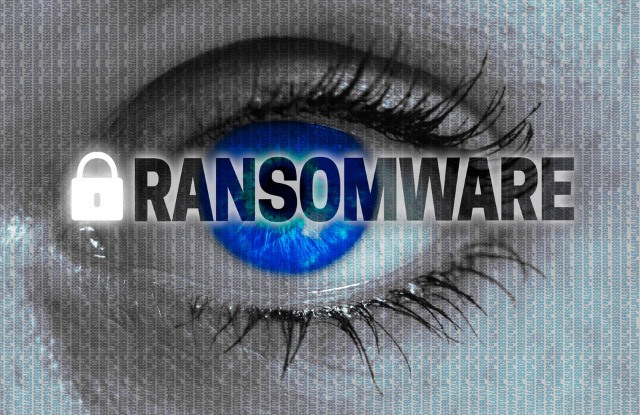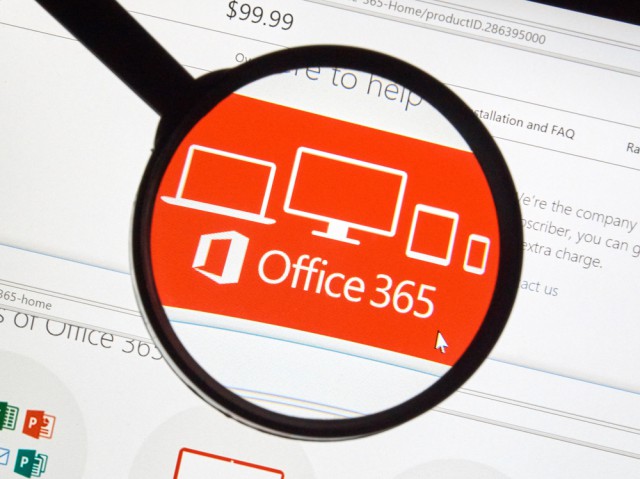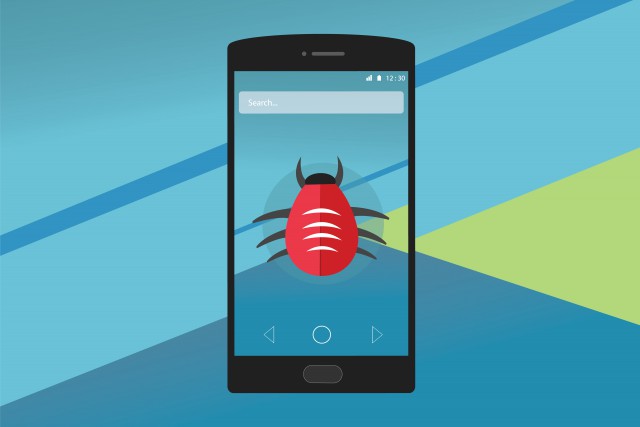
Android malware HummingBad generates $300,000 in monthly revenue
When we discuss mobile malware we usually look at the technological aspects, specifically how it's designed, how it spreads, what devices it targets, how it affects them after infection, and how it can removed. What we rarely get to talk about is the financial side of things, which in the case of certain types of malware is the primary interest of their creators.
Check Point has published a report on the HummingBad malware campaign, finding that it generates $300,000 a month in fraudulent revenue with a pool of 85 million infected Android devices across the globe at its disposal. In a year attackers are looking at about $3.6 million in revenue, assuming the number of devices does not expand considerably.

AVG announces 6 new tools to free your data from ransomware
Ransomware has gone mainstream with several high-profile attacks. It essentially locks your data away and demands money to free it – essentially mob protection money. While some tools have been released to aid frantic people in these times, most versions have gone unfixed.
Now AVG, the free antivirus company, has come out with six new tools designed to fight this affliction. Each is for a different form of this malware.

At least one mobile device in every large enterprise has a malware infection
A new report focusing on malware in the enterprise, finds that large organizations (those with more than 200 iOS or Android mobile devices) are almost guaranteed to have at least one malware-infected device.
The report, by mobile threat defense specialist Skycure finds that four percent of all mobile devices have malware installed, regardless of whether they are managed by an enterprise or an individual.

New ransomware targets Office 365 users
A new zero-day malware has been discovered in Australia that affects all of Microsoft’s Office 365 products including Word, Excel, PowerPoint and Outlook.
The malware was discovered by the cyber security company Check Point and comes in the form of an invoice sent by email. The attack is designed to catch unsuspecting victims according to security analyst Raymond Schippers who said: "The email sent to Office 365 users via Outlook gives the appearance of an invoice in the form of an Office document. When they go to open it, a message will appear telling people the document was created with a previous version of the software, so they will need to click something to enable the content".

90 percent of Android devices vulnerable to Godless malware
When we take a look at the Android distribution updates that Google posts every month one thing seems to never change, and that is the overwhelming number of devices that run an outdated version of the operating system. As of early-June 2016, nearly 90 percent of the handsets with Google Play access are rocking Lollipop, Jelly Bean or another old distribution. Meanwhile, Marshmallow powers only 10.1 percent of Android devices.
And, as Trend Micro security researchers point out, that can be a serious problem in terms of security as there is a new family of malware, known as Godless, that affects "virtually any Android device running on Android 5.1 (Lollipop) or earlier". Using Google's figures, that's 89.9 percent of the Android handsets in use. What's really worrying is that this malware is actually linked to apps available in major app stores, like Google's Play, and it has already made 850,000 victims across the globe.

AT&T fends off 200,000 malware attacks every day
AT&T has revealed that its network is constantly under the threat of attack by cybercriminals looking for ways to breach its security.
Each day the company detects over 30 billion malicious scans being deployed to find weaknesses in its network. Cybercriminals often use such scans to detect security vulnerabilities that could be exploited in future attacks. Researchers at AT&T also noted how the number of ransomware attacks increased significantly, with as many as 1.5 million new attacks occurring between 2013 and 2015.

Ransomware now targets your smart TV
While the ransomware threat is growing at an alarming rate, many consumers remain oblivious to the dangers posed by this form of malware. It is no wonder that infections are at a record level. And things will only get worse as ransomware creators target new types of devices.
Security researchers at Trend Micro have discovered a new ransomware, referred to as FLocker, that targets Android-powered smart TVs. When activated, it locks the device and asks the user to pay "a fine" to enable full functionality again. Interestingly enough, it takes the ransom in iTunes gift cards, not Bitcoin or another cryptocurrency.

Bing now gives malware and phishing warnings
Microsoft has changed the way it displays malware warnings in its search engine Bing to help users distinguish between the various forms of attacks that can appear in its searches.
The company has decided to replace its generic warning for websites that could be potentially dangerous for users, and instead offer separate warnings for sites that are known to contain malware and phishing sites.

You could be held liable for cases of bank fraud if your online security isn’t up to scratch
If you need another reason to pay attention to online security, new measures under consideration by banks could sharpen your focus. At the moment, banks in the UK frequently shoulder the cost of online fraud when customers fall victim. But all this could be set to change.
The plans being looked at by banks, GCHQ and the UK government could see people who haven’t taken care of their own online security being excluded from receiving compensation if their account is hacked.

Trojan hijacks search results to generate advertising revenue
There’s a Trojan out there that forces infected computers to automatically click on advertising banners. By doing so, its creators are earning money while businesses paying to be seen are just burning a hole in their budgets without achieving anything.
Those are the results of a new report by security firm Bitdefender, which has identified the Trojan as Redirector.Paco. According to the company’s press release, the Trojan has, since 2014, infected 900,000 machines.

Malware takes advantage of Windows' God Mode hack to slip past security
The so-called God Mode hack for Windows is rather less grand than it might first sound. Rather than granting users deity-like abilities, it simply provides one-folder access to an absolute butt-load of Control Panel options and settings. But security researchers have discovered that the technique used to create this special folder can also be exploited by malware.
McAfee says that while the Easter Egg is great for power users, it is also being used by attackers for "evil ends". By placing files within the God Mode shortcut folder, malware such as Dynamer is able to run undetected on a victim's computer.

Hackers now targeting victims with country and culture-specific malware
Hackers are targeting specific countries with their malware now, new research from security firm Sophos shows.
The security firm analyzed millions of devices worldwide and has come up with the conclusion that it seems to be more lucrative if the malware is specifically designed to target certain cultures or countries.

Qbot malware resurfaces with renewed powers ready to steal your banking credentials
Qbot -- also known as Qakbot -- is a form of malware that's been around for a number of years, but security researchers at Cisco Talos have noted that it has returned with a vengeance. Once installed the malware steals sensitive data stored in files and cookies, and also monitors live web sessions to grab login credentials.
Detection and immunization is made difficult thanks to the fact that Qbot uses random strings, code blocks, file names and encryption keys to slip under the radar, although it can still be detected by its behavior. Cisco Talos analyzed no fewer than 618 examples of the malware; Qbot was found to feature its own auto-update function and it appears that developers have been hard at work on it.

Malware compromises Swift system -- patch available
The Swift (Society for Worldwide Interbank Financial Telecommunication) system has apparently fallen victim to the same sophisticated hacking scheme that was used to disrupt the Bangladesh central bank last month.
The cyberattack in Bangladesh resulted in a loss of $951 million from the central bank's account at the Federal Reserve in New York and it now seems likely, thanks to new research from BAE systems, that Swift was also compromised during the attack.

Remove CryptXXX ransomware with Kaspersky's free decryption tool
Security firm Kaspersky has released a tool that can be used to decrypt files on computers hit by the CryptXXX ransomware. Rather than paying the ransom demanded to regain access to files, victims are now able to turn to the free RannohDecryptor utility.
CryptXXX had been identified by ProofPoint earlier in the month and described as being closely linked to the Reveton ransomware operation and Angler/Bedep. The ransom of $500 is considered to be quite high, but Kaspersky's free decryption tool means that files can be retrieved without having to part with a cent.
